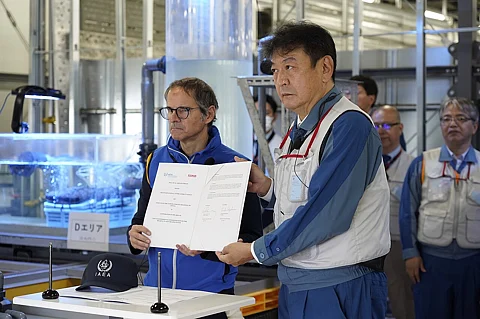

China and Japan held a new round of technical talks in Beijing on May 28 regarding the safety of Japanese seafood exports, with both sides reporting what China described as “substantive progress.” The meeting, requested by Japan, marked the latest step toward potentially lifting a ban China imposed on Japanese aquatic products in 2023 following the release of treated wastewater from the Fukushima Daiichi nuclear power plant.
China’s General Administration of Customs (GAC) confirmed the discussions but did not elaborate on the nature of the progress. Japanese media outlet NHK reported that Japan's Chief Cabinet Secretary Yoshimasa Hayashi told a Cabinet meeting on Friday that Tokyo and Beijing had agreed on technical requirements for resuming seafood exports. Exports will resume once facilities are re-registered and necessary procedures are completed, Hayashi said.
Despite these developments, China's ban on food imports from 10 Japanese prefectures, including Fukushima, Miyagi, and Tokyo, remains in effect. Hayashi urged Cabinet members to continue efforts to have this broader restriction lifted.
Citing unnamed sources, Kyodo News reported that it may take several months before shipments resume, due to required inspections and facility registration. Radiation checks will be necessary before exports are cleared for entry into China.
China initially halted all imports of Japanese seafood on August 24, 2023, after Japan began releasing treated wastewater from the earthquake-damaged Fukushima plant into the Pacific Ocean. Beijing cited public health risks and opposition from its citizens and the international community.
In January, China’s Foreign Ministry stated that independent testing by Chinese research institutions found no abnormal radiation levels in water samples taken near the release site. Nonetheless, Beijing maintains that ongoing independent sampling is necessary in the absence of a binding international framework to oversee such discharges.
Japanese Agriculture Minister Shinjiro Koizumi confirmed Friday that an agreement had been reached during the Beijing talks, and that exports would resume once China completes "necessary procedures." According to the Nikkei newspaper, this includes registering fishery processing facilities and ensuring certification of seafood free from radioactive substances like caesium-137.
While China is expected to soon allow imports from regions outside Fukushima, no official announcement has been made.
The Fukushima Daiichi nuclear plant was severely damaged by the 2011 earthquake and tsunami. Japan began releasing treated wastewater from the site in 2023, asserting that the discharge met international safety standards and was under International Atomic Energy Agency (IAEA) monitoring. Still, concerns from neighboring countries, particularly China, led to a trade freeze that is only now showing signs of easing.